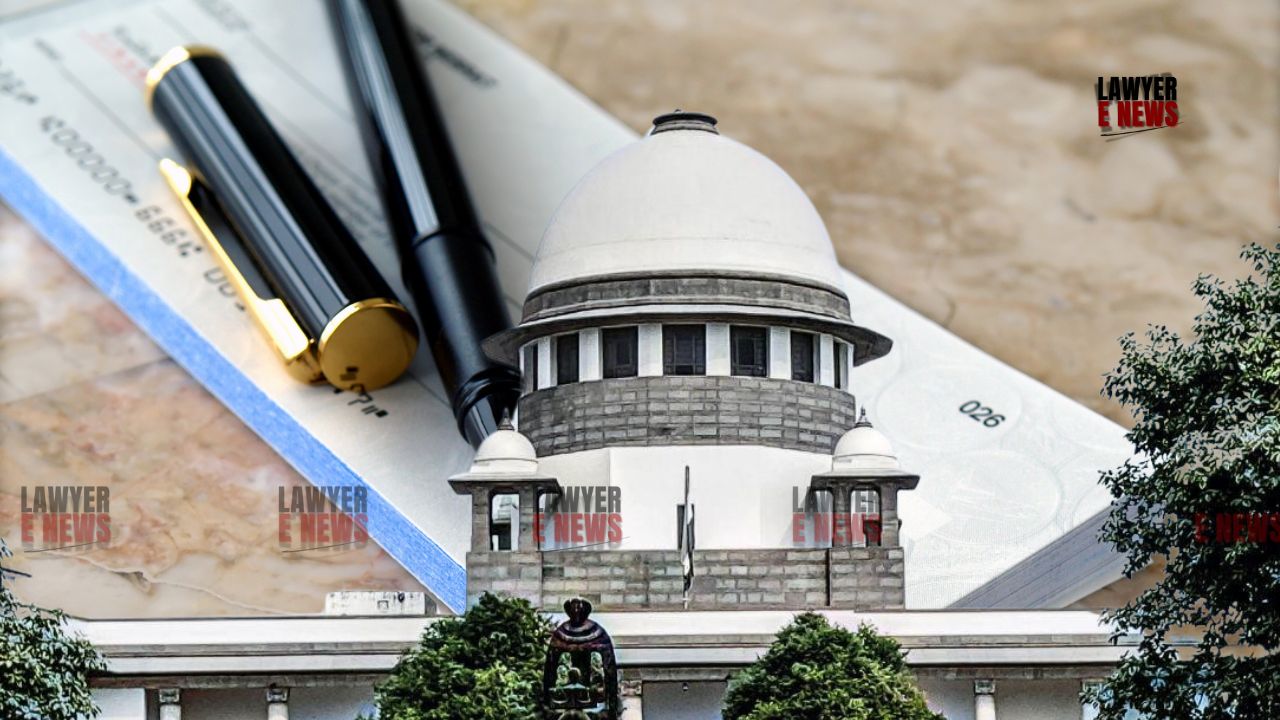-
by Admin
15 February 2026 2:36 AM



Supreme Court of India set aside a High Court order dismissing a petition challenging the mandatory deposit of compensation in a cheque bounce case. The Court clarified that appellate courts have limited discretion under Section 148 of the Negotiable Instruments Act, 1881, to exempt such deposits in exceptional cases. The matter was remitted to the Sessions Court for reconsideration.
Muskan Enterprises, through its proprietor, was convicted under Section 138 of the Negotiable Instruments Act (NI Act) for issuing a dishonored cheque worth ₹37,00,000. The trial court sentenced the appellant to two years of rigorous imprisonment and directed payment of ₹74,00,000 as compensation.
During the appeal, the Sessions Court required the appellant to deposit 20% of the compensation amount as per Section 148 of the NI Act. This order was challenged but upheld by the High Court based on the precedent in Surinder Singh Deswal v. Virender Gandhi, which treated the deposit requirement as mandatory.
After the Supreme Court's decision in Jamboo Bhandari v. Madhya Pradesh State Industrial Development Corporation Ltd., which introduced discretion for appellate courts in applying Section 148, the appellants filed a fresh petition under Section 482 of the CrPC. The High Court dismissed the petition, stating that it was barred due to the withdrawal of the earlier petition without liberty to refile.
The Court emphasized that res judicata does not apply to criminal proceedings. A second petition under Section 482 is maintainable if there is a change in circumstances or law.
The Court observed: “Change of law can be regarded as a vital change in circumstance, clothing the High Court with the power to entertain a subsequent petition.”
The Court clarified the use of "may" and "shall" in Section 148. While "may" grants discretion to the appellate court to impose a deposit, "shall" mandates that if a deposit is required, it must be at least 20% of the compensation awarded.
The Court stated: “Reading ‘may’ as ‘may’ and ‘shall’ as ‘shall’ respects the legislative intent and preserves the discretion of the appellate court in exceptional cases.”
The Court reconciled the conflicting judgments in Surinder Singh Deswal and Jamboo Bhandari, favoring the latter for granting limited discretion to appellate courts in exceptional cases.
The Supreme Court allowed the appeal and remitted the case to the Sessions Court to reconsider the issue of deposit under Section 148, in light of the principles laid down in Jamboo Bhandari. The Court observed:
“It would amount to a travesty of justice if the appellate court is denied discretion to waive deposit in rare and exceptional cases where the conviction and compensation order appear prima facie invalid.”
This judgment provides clarity on appellate courts’ discretion under Section 148 of the NI Act. It reinforces that while the statute mandates a minimum deposit, courts retain the authority to waive it in exceptional circumstances to prevent miscarriage of justice.
Date of Decision: December 19, 2024
